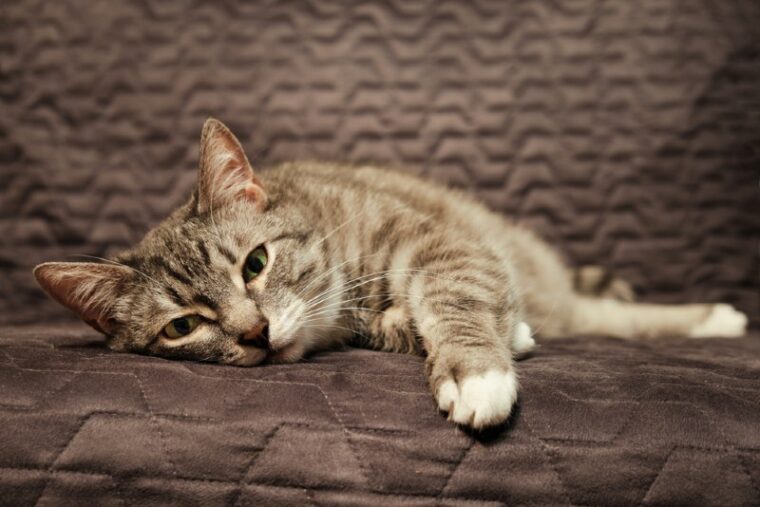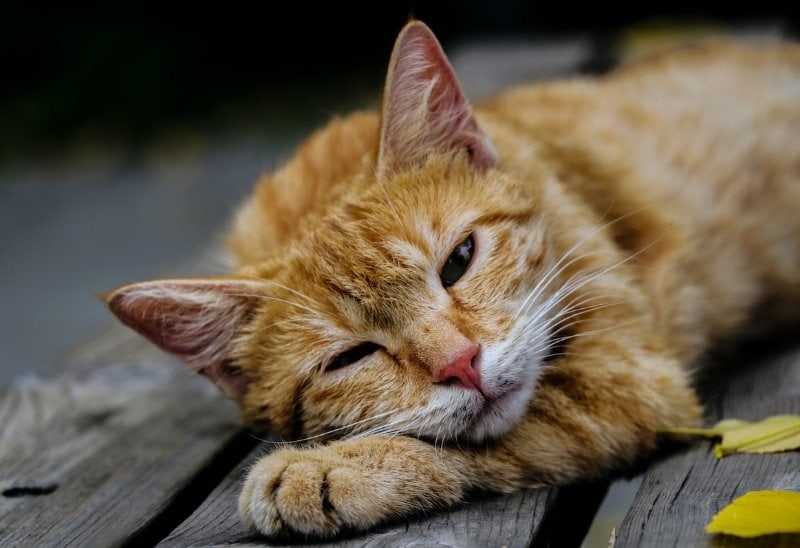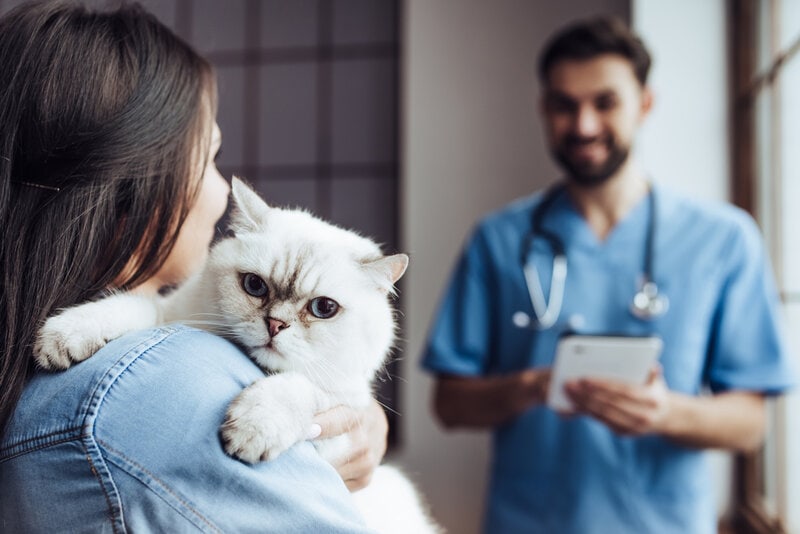
If your cat has been acting strangely, and you suspect it could be pancreatitis, or your vet has suggested the possibility, you’re probably scared but don’t fret. Here is all you need to know about feline pancreatitis, the possible signs, treatments, diagnosis, and causes.
Feline Pancreatitis can be fatal if left untreated, so follow our instructions to ensure your cat’s safety.
What Is Feline Pancreatitis?
The pancreas is a small organ in the abdomen between the cat’s left kidney and intestines. This organ may be small, but it’s very important. It produces multiple hormones, such as insulin-regulating glucose and blood sugar. It also produces enzymes that aid in food digestion in the intestines. Pancreatitis occurs when these enzymes are released at inappropriate times, causing inflammation and damage to the surrounding tissue.
This is commonly called “triaditis,” as it inflames multiple organs in the area.
It was once thought that feline pancreatitis was rare, but it’s now known well enough to be diagnosed more often. There is no sex, breed, or age that pancreatitis occurs more often, so any cat could be affected. There are multiple ways feline pancreatitis can look, so be sure to read through all of the signs to ensure that you know whether your cat may or may not have it.

What Are the Signs of Feline Pancreatitis?
Knowing whether or not your cat has pancreatitis can be very difficult. Signs of pancreatitis can be very vague and hard to decipher. They usually look like any other digestive problem, which can be fairly common in cats, especially if they aren’t getting the right nutrients from their food.
What Are the Causes of Feline Pancreatitis?
In short, the exact answer is unknown. However, there are many possible causes for feline pancreatitis that veterinarians have suggested and theorized. One such theory is that it’s more common when cats ingest poison or inedible substances. This could cause trouble with digestion unrelated to pancreatitis, but it’s not hard to see how it could cause pancreatitis.
Another theory is that trauma can cause pancreatitis. Stress is a big factor in a feline’s health, which cannot be overlooked in this case. Stress and trauma could be a factor to consider if your cat has been through something and is suddenly showing symptoms of feline pancreatitis.

Some veterinarians say that parasitic infections can cause pancreatitis, and others say it could be caused by inflammatory bowel disease or liver diseases. Eating too much fatty food can cause pancreatitis in dogs, but it’s yet to be researched in cats.
Overall, not much is known about the cause of feline pancreatitis. It seems to occur quite randomly in cats, but there are definitely possible causes. Feline pancreatitis is definitely something to look out for if something has happened to your cat recently, and they’ve begun acting strangely and showing the signs above.
How Do I Care for a Feline With Pancreatitis?
If your cat has been showing the signs above, and you suspect pancreatitis, then the first step is heading to the vet to get them diagnosed. It could just be a digestive problem, and you need to change their food, or there could be something else wrong. If your cat has been diagnosed with pancreatitis, here’s what needs to happen.
The primary goals are managing pain, dehydration, nausea, and nutrition. You must ensure the cat isn’t in pain, has enough to drink and eat, and isn’t throwing up all of its food. This can usually be monitored okay at home when given a treatment plan by a vet. However, if your cat’s case is too acute or severe, they might need to stay with the veterinarian to ensure their safety and recovery.

Hydration is very important when treating feline pancreatitis. There must be enough fluids and electrolytes to keep the cat alive and healthy, especially when they can’t keep food or water down. The veterinarian will likely give the cat fluids through intravenous fluid therapy. If your cat’s case is less severe, fluids can be given under the skin at the clinic or in your home.
Anti-nausea medication is also a very possible outcome of bringing your cat with pancreatitis to the vet. This is so they can hopefully keep food down and their nutrition and hydration in good standing. Even when nausea and vomiting aren’t seen, the vet will likely prescribe anti-nausea medications. Abdominal pain can also lessen with these meds, so it’s important that you give them to your feline. Additional pain medication may be needed in some cases, so expect that if your cat has a more severe case.
The sooner your cat eats again, the faster it will heal. The main problem with pancreatitis is that it makes the cat not want to eat due to nausea and vomiting. A feeding tube might be required later if your cat refuses to eat.
Frequently Asked Questions (FAQ)
What is the life expectancy of a cat with pancreatitis?
Cats can return from pancreatitis, but they must get to the vet as soon as possible to avoid the case becoming severe. If it’s severe, there is a possibility of death. In other cases, however, the cat will go on to live the normal life expectancy for its breed.

Can a cat recover from pancreatitis?
A cat can recover from pancreatitis. It’s a very treatable problem, as all that’s needed is for your cat to return to eating as soon as possible and to ensure they’re getting enough fluids. Recovery is possible if you follow the correct steps and remain vigilant to your cat’s needs.
What foods can cause pancreatitis in cats?
While the true cause is unsure, it’s thought that fatty foods and too many carbohydrates can cause pancreatitis. Too many carbs can spike your cat’s blood sugar, making it possible for the pancreas to mess up in producing insulin, causing pancreatitis. A high-fat diet will cause the pancreas to work harder to produce more enzymes to digest the fat. This can also cause pancreatitis.
Final Thoughts
Overall, pancreatitis can be scary, but it’s very curable. If you follow the vet’s instructions and get your cat eating again as soon as possible, your cat will lead a normal and healthy life.
Some severe cases will require hospitalization, where your cat could be given fluids and a feeding tube. Some even worse cases can cause shock, and pancreatitis is possibly fatal, so ensure that you go to the vet when you notice the signs of this scary disease.
Featured Image Credit: Zhuravlev Andrey, Shutterstock







